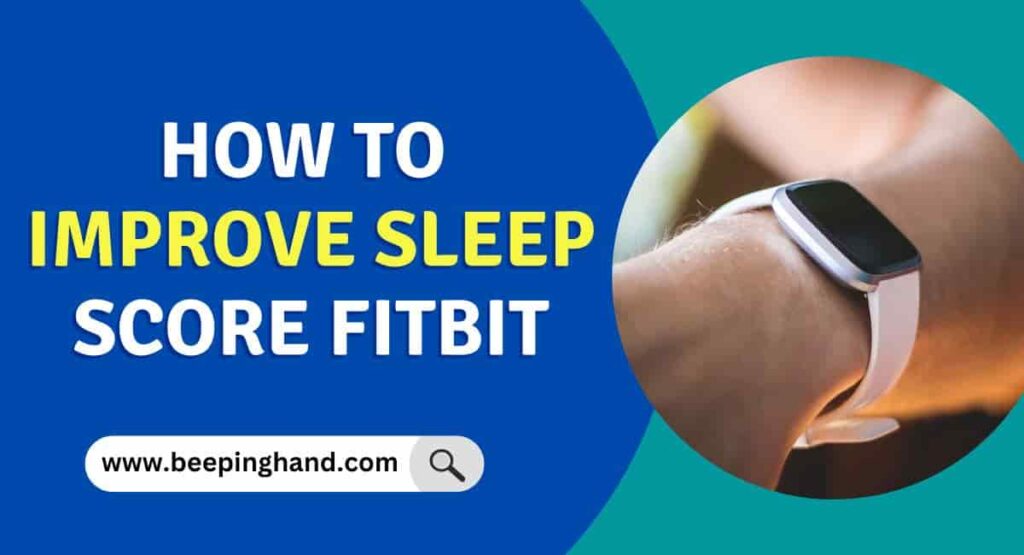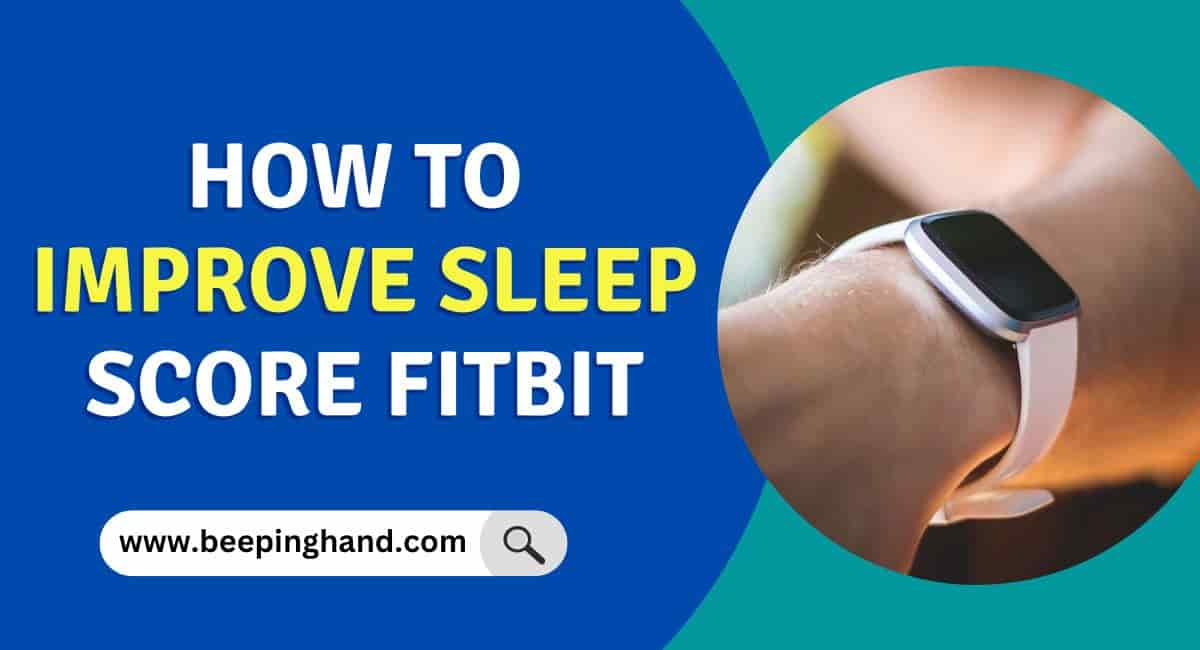Sleep is an essential component of overall health and well-being, and tracking your sleep patterns can help you identify areas for improvement. The Fitbit is a popular device for tracking sleep, and its Sleep Score feature provides a snapshot of your overall sleep quality.
If you’re looking for How to Improve Sleep Score on Fitbit, here are some tips and tricks to help you get started. You may read this for full information.
How to Improve Sleep Score on Fitbit

Improving your sleep score on Fitbit is a worthwhile goal for achieving better overall sleep quality and wellness. By following some key strategies, you can work towards enhancing your sleep score and optimizing your restorative sleep.
Here are some ways for you to Improve your Sleep Score on Fitbit
Create a Consistent Sleep Schedule
One of the most effective ways to improve your Sleep Score on Fitbit is to establish a consistent sleep schedule. Try to go to bed and wake up at the same time every day, even on weekends. This helps regulate your body’s natural sleep-wake cycle, which can improve the quality of your sleep.
Create a Relaxing Sleep Environment
Your sleep environment plays a significant role in the quality of your sleep. Make sure your bedroom is cool, dark, and quiet. Consider investing in blackout curtains, earplugs, or a white noise machine if you live in a noisy area. Remove any electronics or other distractions from your bedroom.
Reduce Your Exposure to Blue Light
Exposure to blue light from electronic devices can disrupt your body’s natural sleep-wake cycle. To reduce your exposure to blue light, avoid using electronic devices such as smartphones and tablets for at least an hour before bedtime. You can also try using a blue light filter on your devices, or invest in a pair of blue light-blocking glasses.
Establish a Bedtime Routine
Creating a bedtime routine can help signal to your body that it’s time to sleep. Consider taking a warm bath, reading a book, or practicing relaxation techniques such as meditation or deep breathing. Avoid any stimulating activities, such as exercise or watching TV, in the hour leading up to bedtime.
Limit Caffeine and Alcohol Intake
Caffeine and alcohol can both disrupt your sleep patterns. Try to limit your caffeine intake, especially in the afternoon and evening. Avoid alcohol before bedtime, as it can interfere with your ability to fall asleep and stay asleep.
Get Regular Exercise
Regular exercise can improve the quality of your sleep. Aim to get at least 30 minutes of moderate exercise each day, such as brisk walking or cycling. Try to avoid exercising too close to bedtime, as it can increase your heart rate and make it more difficult to fall asleep.
Practice Good Sleep Hygiene
Good sleep hygiene involves adopting habits and practices that promote healthy sleep. This includes avoiding naps during the day, creating a comfortable sleep environment, and using your bed only for sleep and sex. Establishing good sleep hygiene can help improve the quality of your sleep and your Sleep Score on Fitbit.
Note – If you are facing the problem of Fitbit not Tracking Sleep then you should check your Solve Sleep Tracking on Fitbit
Wrapping Up
This article is all about How to Improve Sleep Score on Fitbit. To improve your sleep score on Fitbit, focus on maintaining a consistent sleep schedule, creating a relaxing bedtime routine, optimizing your sleep environment, and utilizing the sleep tracking features on your device. These practices can help enhance your sleep quality and ultimately improve your sleep score.
If you have any queries then you can ask in the comment box about How to Improve Sleep Score on Fitbit. We’ll answer all your questions. You may read more about Connect Fitbit with Mobile and for more information on Sleep Tracking you check the Fitbit App
FAQ’s How to Improve Sleep Score on Fitbit
What is the Sleep Score on Fitbit?
The Sleep Score is a feature on Fitbit that provides a snapshot of your overall sleep quality. It takes into account factors such as your sleep duration, time spent in each sleep stage, and the number of times you wake up during the night.
What is a good Sleep Score on Fitbit?
A good Sleep Score on Fitbit is typically considered to be 80 or above. However, it’s important to note that everyone’s sleep needs are different, and what works for one person may not work for another.
Can I improve my Sleep Score on Fitbit?
Yes, it’s possible to improve your Sleep Score on Fitbit by making changes to your sleep habits and routines. This can include establishing a consistent sleep schedule, creating a relaxing sleep environment, reducing your exposure to blue light, and practicing good sleep hygiene.
How long does it take to see an improvement in my Sleep Score on Fitbit?
The time it takes to see an improvement in your Sleep Score on Fitbit can vary depending on your individual circumstances. However, most people begin to see improvements in their Sleep Score within a few weeks of making changes to their sleep habits and routines.
Should I use the Sleep Score on Fitbit as my only indicator of sleep quality?
While the Sleep Score on Fitbit can provide valuable information about your sleep quality, it shouldn’t be the only indicator you use. It’s important to also pay attention to how you feel during the day, such as whether you feel rested and energized or tired and sluggish.
Can using my Fitbit to track my sleep be harmful in any way?
Using your Fitbit to track your sleep is generally considered safe and non-invasive. However, it’s important to remember that the Sleep Score is just one tool for tracking your sleep, and it’s important to also pay attention to your body’s natural cues and signals.
